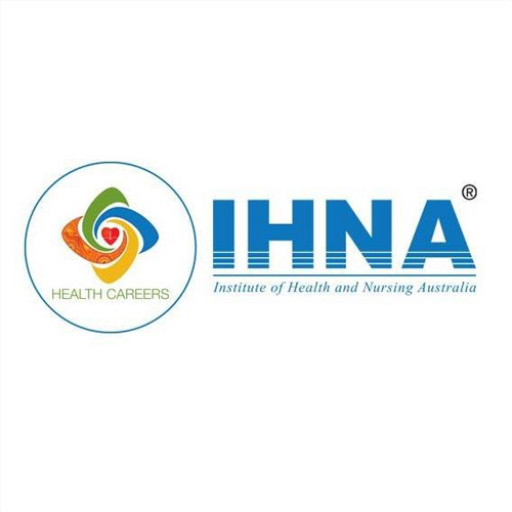Individual Support is a comprehensive qualification designed to equip students with the skills and knowledge necessary to provide high-quality assistance to individuals in various community and support settings. This program focuses on developing a thorough understanding of diverse client needs, effective communication techniques, and the application of ethical and culturally appropriate support practices. Students will learn how to assist people with disabilities, mental health issues, and other support requirements, ensuring their safety, wellbeing, and independence.
Throughout the course, learners will engage in both theoretical studies and practical training, enabling them to apply their knowledge in real-world environments such as aged care facilities, community centers, and residential support services. The curriculum covers essential topics including understanding different types of support needs, implementing person-centered approaches, and adhering to legislative and organizational policies related to individual care. Participants will also explore effective methods of medication management, supporting individuals with complex needs, and managing challenging behaviors.
The Individual Support program emphasizes the development of key skills such as empathy, patience, problem-solving, and teamwork. Students will be guided by experienced educators and industry professionals, gaining insights into current best practices and industry standards. This qualification is ideal for those aspiring to work in roles that involve assisting people with everyday activities, advocating for client rights, and fostering an inclusive environment that respects diversity and individual preferences.
Graduates of this program will be prepared to pursue employment opportunities in aged care, disability support, community health, and other human services sectors. The program also provides a solid foundation for further studies in health and community services. Upon successful completion, students will receive a nationally recognized qualification that certifies their ability to make a positive difference in the lives of many individuals requiring support. Join the Individual Support program today and take the first step towards a rewarding career dedicated to enhancing the quality of life for others.
Program Content Description for Individual Support
The Individual Support program is a comprehensive qualification designed to equip students with the essential skills and knowledge required to provide high-quality assistance to individuals with diverse needs in various community settings. Throughout this program, students will learn how to support individuals in their personal, social, and physical wellbeing, fostering a person-centered approach that respects the dignity and independence of each person. The coursework covers a broad range of topics, including understanding diverse needs, effective communication, assisting with daily activities, and implementing individualized support plans.
Students will acquire practical skills in assisting with personal care such as mobility, hygiene, and nutrition, as well as providing emotional and social support to promote mental health and wellbeing. The program emphasizes the importance of health and safety procedures, confidentiality, and ethical considerations when working with vulnerable populations. Participants will engage in real-world placements in community organizations, residential facilities, or healthcare settings, where they will apply their theoretical knowledge under supervision. These practical experiences enable students to develop confidence, professionalism, and a compassionate approach to supporting others.
In addition to core competencies, the program explores contemporary issues in care, including cultural sensitivity, diversity, and inclusion, ensuring graduates are prepared to work effectively within multicultural environments. The curriculum further covers safeguarding practices, recognizing signs of abuse or neglect, and responding appropriately to complex situations. Students will also learn how to collaborate with other healthcare professionals and support networks to ensure comprehensive care for individuals.
Upon completion, graduates will be equipped with the skills necessary to assist individuals to lead more independent and fulfilling lives, whether in community settings, residential care, or supported living environments. This qualification provides a strong foundation for those seeking employment in aged care, disability support, mental health services, or community welfare sectors. The program aims to foster a sense of empathy, professionalism, and ethical responsibility, preparing students to make a positive difference in the lives of others through dedicated support and care.
Program requirements for the Diploma of Individual Support typically include a combination of core units, elective units, and practical assessments designed to ensure students acquire the necessary knowledge and skills to provide quality care and assistance to individuals in various settings. Prospective students are generally required to have completed secondary education or equivalent, with no specific prerequisites for entry, although some programs may recommend relevant experience or a clear interest in supporting individuals with diverse needs.
Applicants must undertake and successfully complete coursework that covers essential areas such as assisting clients with daily living activities, supporting independence, and understanding mental health issues, dementia, and other medical conditions. They are also expected to develop strong communication and interpersonal skills, demonstrate cultural competence, and understand legal and ethical considerations in providing support. Practical placement or internship components are mandatory, providing hands-on experience under supervision to apply theoretical knowledge in real-world environments such as community settings, residential care facilities, or hospitals.
Assessment methods include written assignments, practical demonstrations, observation reports during placements, and projects that evaluate both theoretical understanding and practical competence. To graduate, students must achieve a minimum standard of competency across all assessment tasks, as defined by the curriculum and national regulation standards. Certain programs may also require students to hold current first aid and CPR certifications, which can often be obtained during the course or prior to commencing studies. Additionally, a criminal history check may be necessary for placement opportunities.
Further requirements may include language proficiency, particularly for students whose first language is not English, with proof of suitable language skills such as an IELTS score or equivalent. Students are advised to review specific entry criteria and prerequisites outlined by their chosen training provider. Successful completion of the program qualifies graduates to work in various settings, supporting individuals with disabilities, aged care needs, or those experiencing mental health challenges, and may lead to further education or specialized training in allied health fields.
The financing options for the Individual Support program at Federation TAFE are designed to accommodate the diverse needs of students seeking to enhance their skills and career prospects in the community support sector. Students can take advantage of various funding schemes, grants, and subsidies available through federal and state government initiatives, which aim to promote vocational education and training.
Government-funded training options are accessible to eligible students, including concessions and supported fee arrangements that significantly reduce the cost of tuition. For domestic students, government subsidies may cover a substantial portion of the course fees, resulting in lower out-of-pocket expenses. International students, on the other hand, are typically required to pay full tuition fees, which are set by Federation TAFE and depend on the specific course load and delivery mode.
Additionally, students may explore financial assistance through many scholarship programs offered by Federation TAFE, which provide support based on merit, financial need, or specific areas of interest within the community services field. These scholarships can help offset costs related to tuition, learning resources, or related expenses such as equipment and transportation.
For those unable to fund their studies upfront, Federation TAFE encourages the use of payment plans, allowing students to spread the cost of their education over manageable installments. In some cases, students may also access government loans or VET FEE-HELP where applicable, enabling financial support for tuition fees with flexible repayment options after completing the course.
Students interested in financially supporting their studies should contact Federation TAFE’s student services or financial aid office to explore the most suitable options based on their individual circumstances. Furthermore, employers may also subsidize employee training through employer-funded training arrangements or apprenticeships, which can significantly reduce individual costs and provide paid work experience concurrently.
In summary, the financing of the Individual Support program at Federation TAFE encompasses a diverse array of funding opportunities, including government subsidies, scholarships, payment plans, and employer support, all aimed at making vocational education accessible and affordable for a broad range of students.
The Individual Support program at Federation TAFE is designed to equip students with the essential skills and knowledge required to provide high-quality support in various community settings. This qualification focuses on developing competencies that enable graduates to assist individuals with health, wellbeing, and personal needs across residential care, community, and other support environments. The curriculum is structured to cover a range of practical skills, including assisting clients with daily activities, supporting independence, managing basic health issues, and understanding the importance of culturally appropriate support. Students are introduced to core areas such as communication skills, understanding diversity, safety procedures, and ethical practices in care. The program emphasizes both theoretical learning and practical experience, with placements in real-world settings to prepare students for the demands of the industry. Graduates of the program can pursue employment opportunities in aged care, disability support, community services, and other related sectors, where they play a pivotal role in enhancing clients' quality of life and promoting wellbeing. The course is suitable for those seeking a rewarding career in support services, offering pathways to further education and specialization within the healthcare and social assistance fields. Federation TAFE provides comprehensive support to students throughout their studies, including access to skilled trainers, modern facilities, and industry connections that facilitate practical learning. The program aligns with national qualification standards and industry expectations, ensuring graduates are well-prepared to meet the evolving needs of the community support sector.








